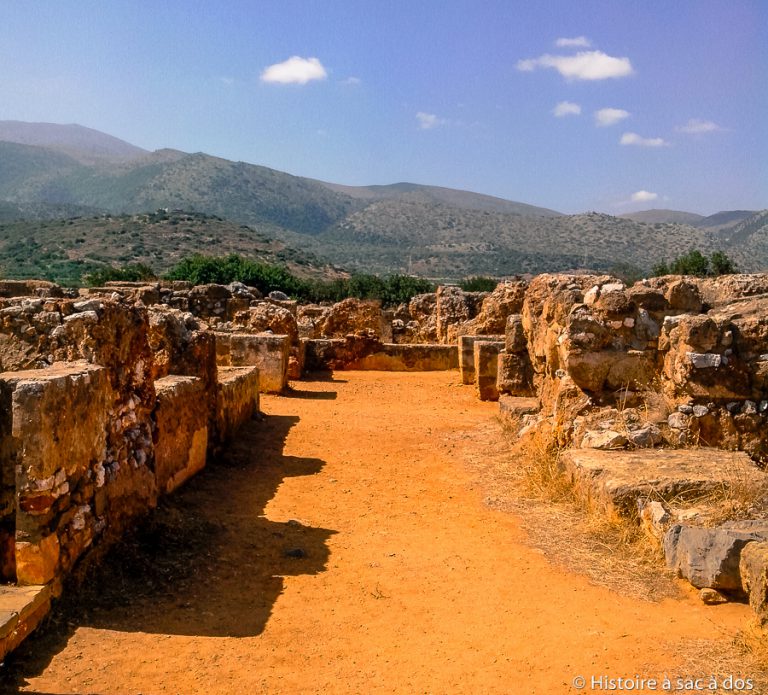
Crète minoenne histoire des palais de Phaistos, Hagia Triada et Malia
I was standing at Phaistos Palace, a complex built for Minoan royalty, located south of Heraklion. After visiting the famous - and crowded - site of Knossos Palace , which is the most popular ancient sight in all of Crete, I was curious about the lesser-visited Phaistos. Although second in line to Knossos, Phaistos was still a place of power.

LE PALAIS DE PHAISTOS
Palace of Phaistos. 18,000 sq.m. of Minoan culture. Category: Myth. Destination: Crete. Phaistos was one of the most important centers of Minoan civilization, and the most wealthy and powerful city in southern Crete. It is located eastern of Kastri hill, at the end of the Messara plain. It was inhabited from the Neolithic period and its peak is.
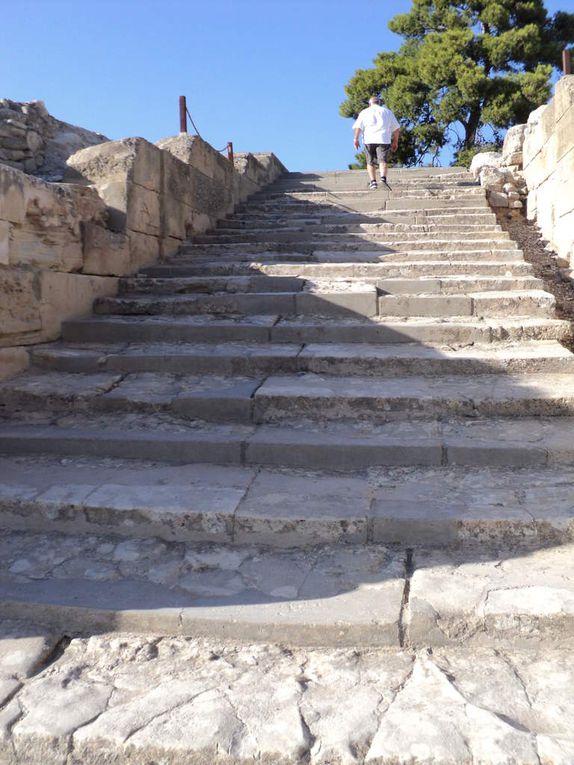
Palais de Phaistos en Crète, Civilisation Minoenne Histoire et civilisations anciennes
Located on the fertile Mesara plain in central Crete, Phaistos has been inhabited since the Final Neolithic period (c. 3600-3000 BCE). The settlements greatest period of influence was from the 20th to 15th century BCE, during which time it was, along with Knossos, Malia and Zakros, one of the most important centres of the Minoan civilization.. The settlement of Phaistos continued into the.

Voyage en Crète (Guide) Comment visiter les ruines du palais de Phaistos (Photos + Conseils
The Palace of Phaistos lies on the East end of Kastri hill at the end of the Mesara plain in Central Southern Crete. To the north lies Psiloritis, the highest mountain in Crete. On the slopes of Psiloritis is the Kamares cave, probably a religious or cult centre for Phaistos and the Mesara plain.
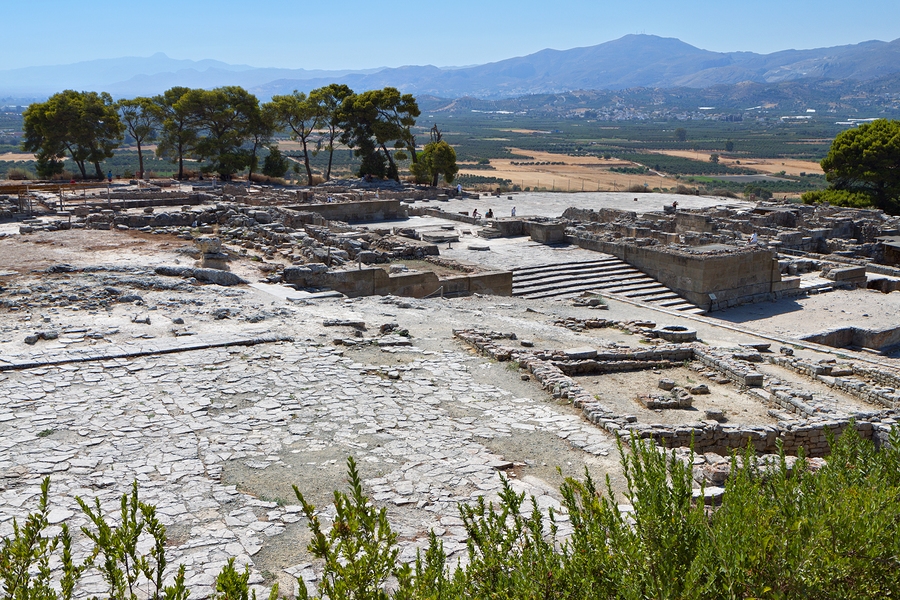
Phaistos Minoan Palace on Crete
Phaistos Crete, ancient minoan palace. Build in about 1990 BC destroyed i around 1700 or 1650 BC. Used until 1450 BC. Visit Crete your selv.Video-editing, ba.
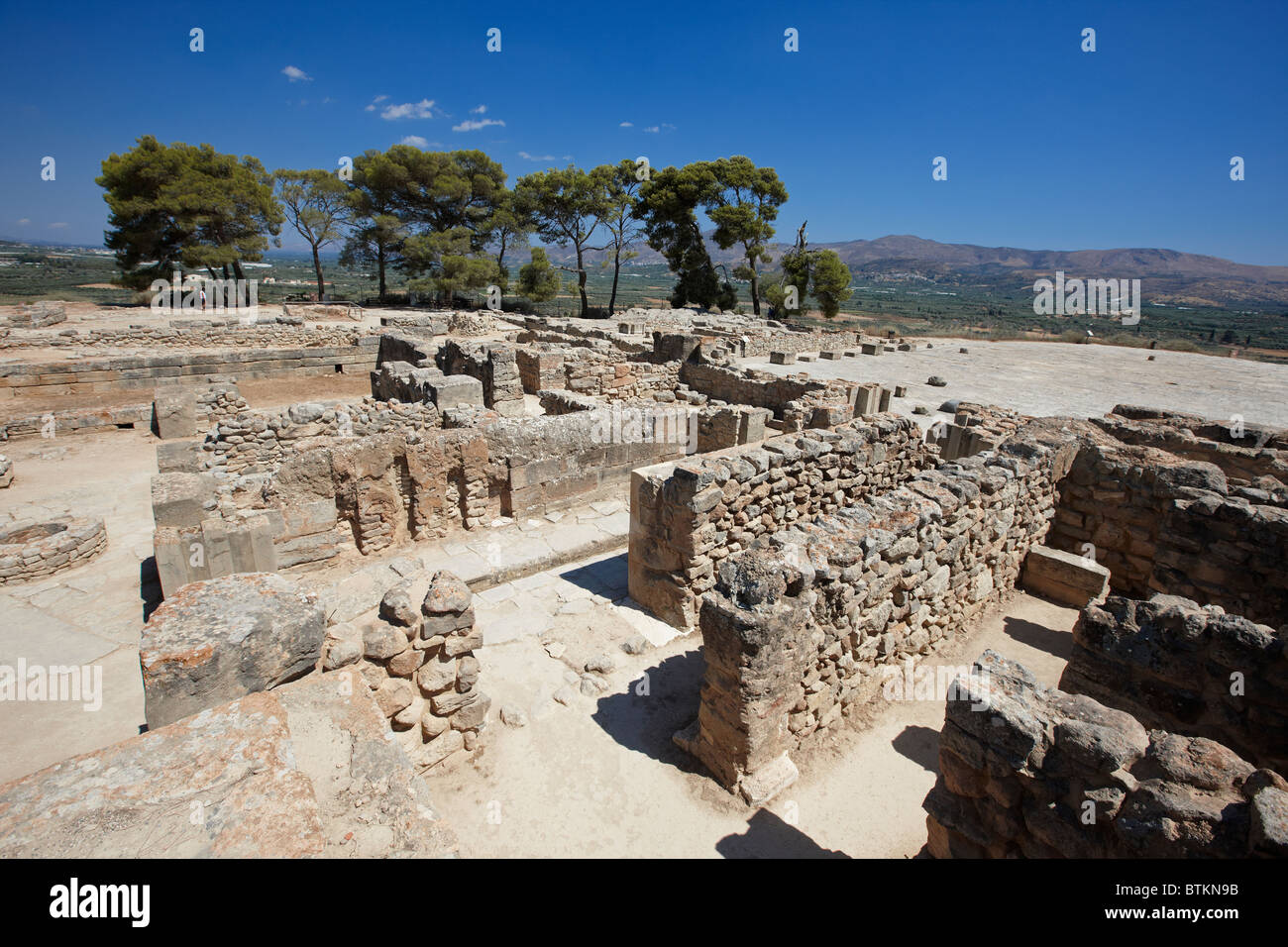
Ruines du palais Minoen de Phaistos. Crète, Grèce Photo Stock Alamy
Le palais de Phaistos, en Crète, est l'un des plus grands sites minoens de l'île. Situé sur la côte sud, c'est un endroit fascinant à visiter, avec des vues magnifiques et une foule moins nombreuse. Voici mon guide pour vous aider à planifier votre visite avec carte, conseils et photos. SOMMAIRE
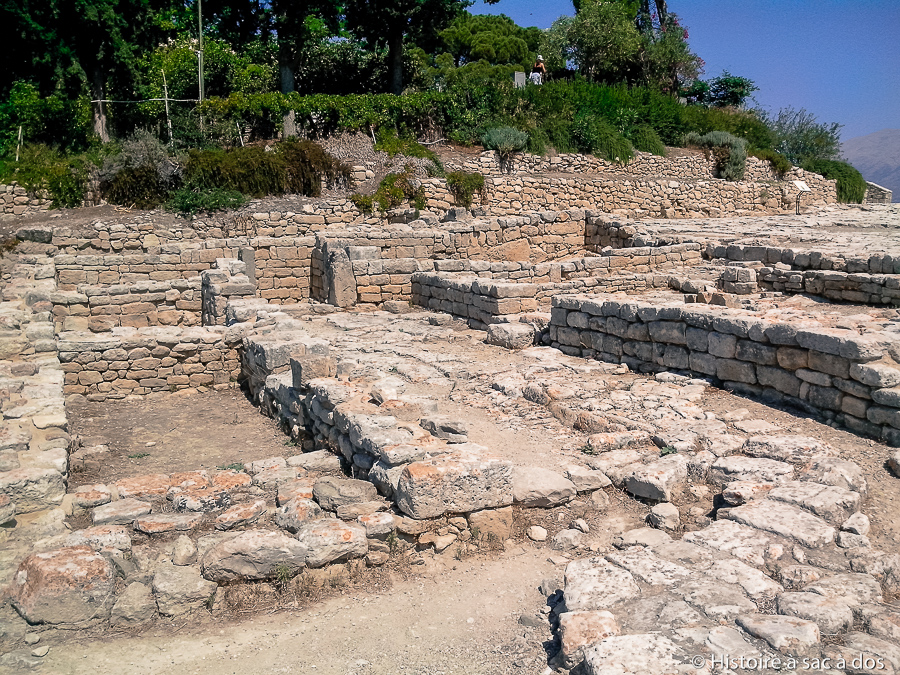
Crète minoenne histoire des palais de Phaistos, Hagia Triada et Malia
The Phaistos Disc. The name of Phaistos is quite famous because it is associated with the Phaistos disc which was found in those ruins. In the Northeast part of the palace (in a complex from the first palace), you will see a board explaining where the disc was found. The disc is made of clay and dates back to around 1600 BC.

Palais de Phaistos en Crète, Civilisation Minoenne Histoire et civilisations anciennes
Location: Mires. The Minoan Palace of Phaestos in Crete: The Palace of Phaistos is located on the east end of Kastri Hill, the end of the Messara plain in South Central Crete. It is considered to be one of the finest of all Minoan palaces. The preserves of the old and new palace can be seen until nowadays.

hellenic period Phaistos 2
The habitation of the Phaistos site continued from the Neolithic age until the Hellenistic years (3rd century BC), however, the city witnessed its greatest period during the Minoan era. The first palace complex was built circa 1900 BC. Together with the surrounding buildings, it covered 18.000 square metres, an area slightly smaller than that of the palace complex of Knossos.
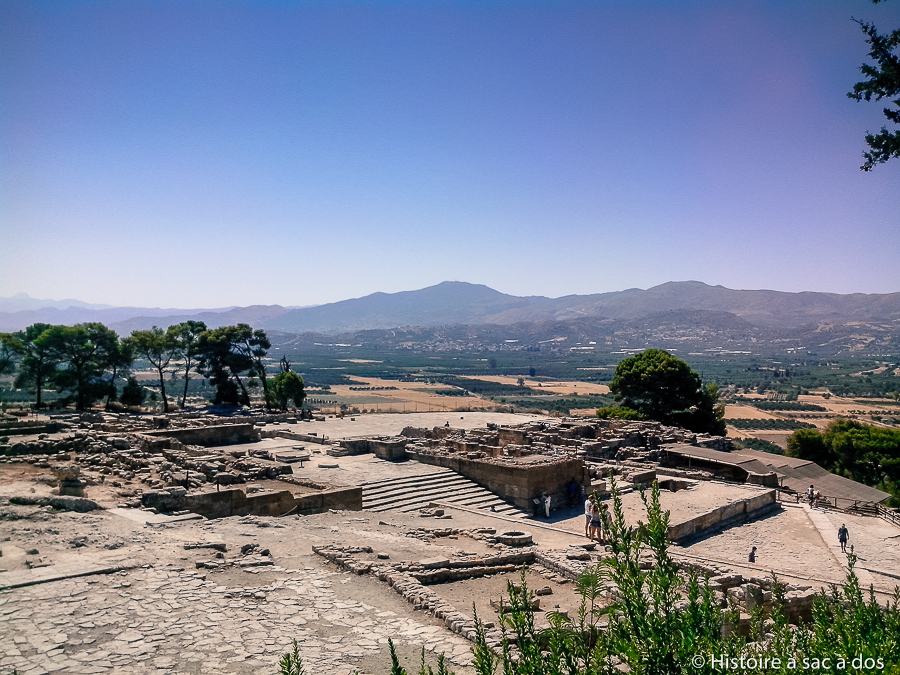
Crète minoenne histoire des palais de Phaistos, Hagia Triada et Malia
The Palace of Phaistos. The palace of Phaistos is one of the most important Minoan palaces and with approx. 18,000 m² the second largest after that of Knossos. It lies in the western part of the large and fertile Messara plain on a hill from which the king was able to control the country and the coast with the ports (Komos and Matala).

LE PALAIS DE PHAISTOS
Phaistos ( Greek: Φαιστός, pronounced [feˈstos]; Ancient Greek: Φαιστός, pronounced [pʰai̯stós], Linear B: 𐀞𐀂𐀵 Pa-i-to; Linear A: 𐘂𐘚𐘄 Pa-i-to) [1] ), also transliterated as Phaestos, Festos and Latin Phaestus, is a Bronze Age archaeological site at modern Faistos, a municipality in south central Crete.
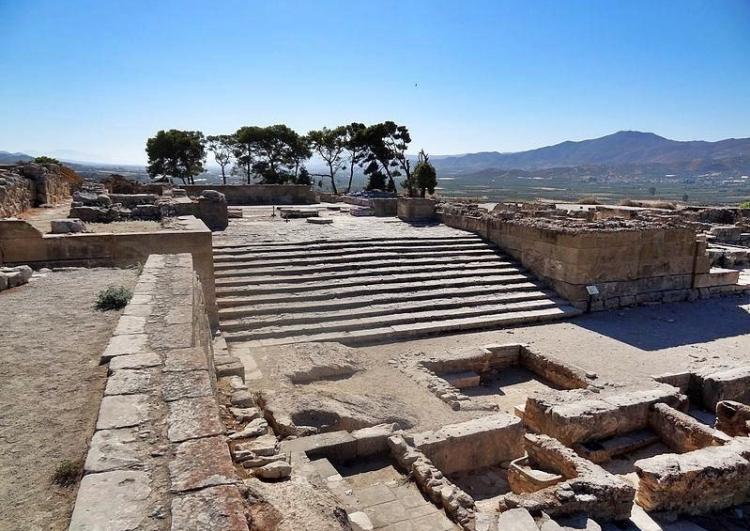
Phaistos, the jewel of Minoan Crete Monza
The palace of Phaistos (Faestos, Phaestos, Faistos) commands the Messara plain from its location on a low hill, and it is the second largest palace of Crete after Knossos. The site was inhabited since the late neolithic era with several well organized settlements on the hill and the surrounding area, and the first palace was built around 2000.

LE PALAIS DE PHAISTOS
The archaeological investigation of Phaistos started in 1884 by F. Halbherr and continued by the Italian Archaeological School at Athens, under the direction of F. Halbherr and L. Pernier in 1900-1904 and by Doro Levi, in 1950-1971. Chronology: 4th millenium: 3200 - 1400 BC:

Voyage en Crète (Guide) Photos et conseils pour visiter les ruines du palais de Phaistos (avec
Phaistos (GR: Φαιστός - also spelled : Phaestos, Phaestus, Faistos, Festus and Festos) was one of the most important centres of Minoan civilization, and the most wealthy and powerful city in southern Crete. It was inhabited from the Neolithic period until the foundation and development of the Minoan palaces in the 15th century B.C.
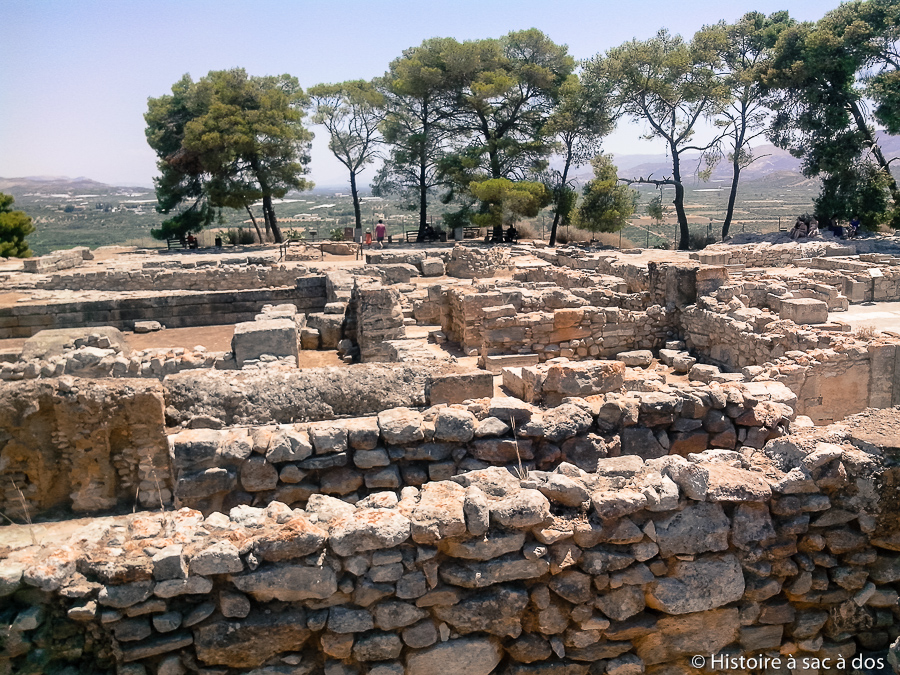
Crète minoenne histoire des palais de Phaistos, Hagia Triada et Malia
Metadata No higher resolution available. Phaestos_entrée_palais.jpg (800 × 600 pixels, file size: 160 KB, MIME type: image/jpeg) File information Structured data Captions Captions English Entrance to the main wing of Phaistos Palace, Crete. Summary[edit] Licensing[edit]
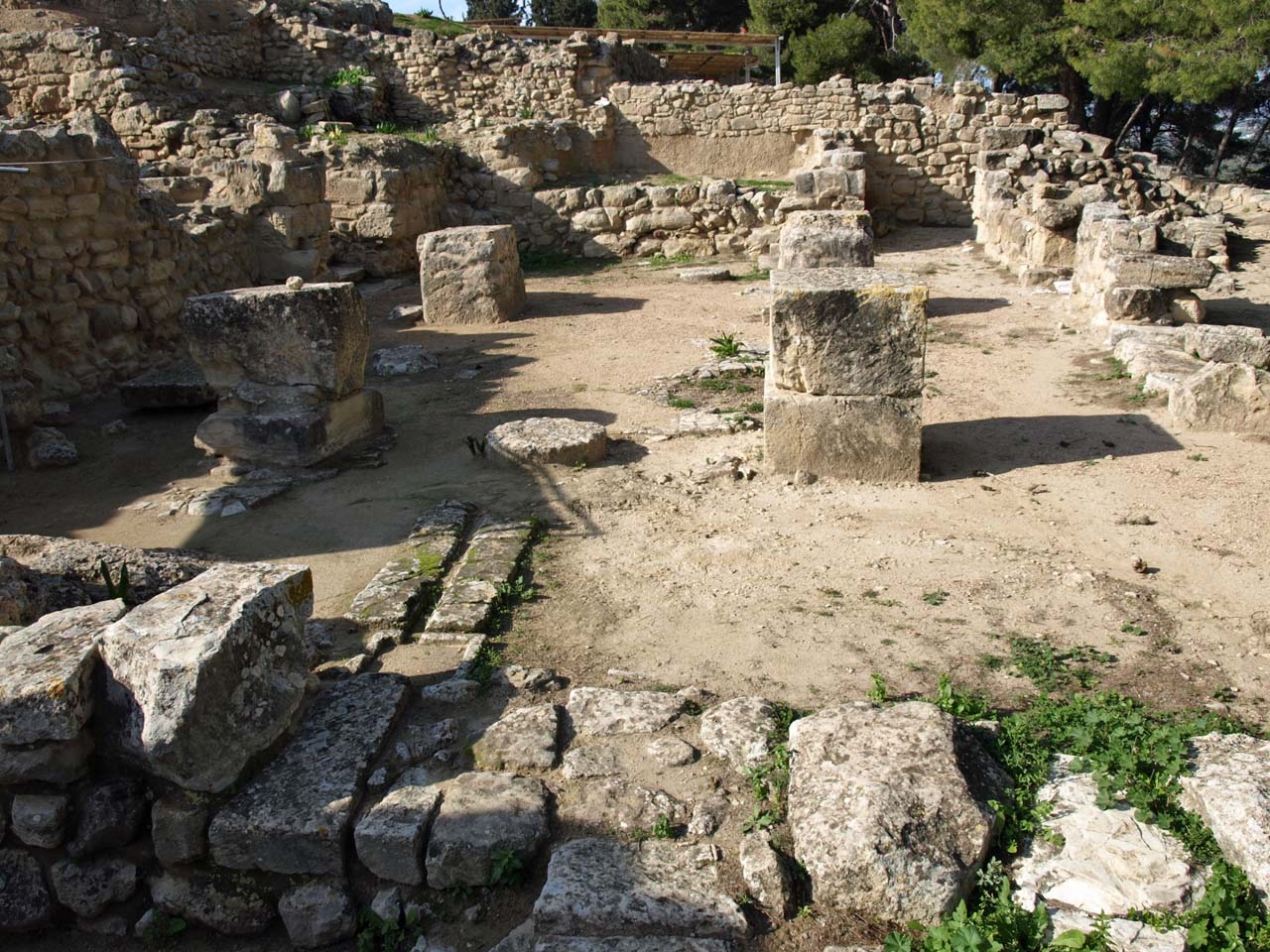
The Minoan Palace at Phaistos
Phaistos site of Minoan-era palace with rooms made of alabaster. Located 62 km (38 miles) from Heraklion, Crete, the Bronze Age site lies on the outskirts of the modern-day city of Faistos. Unlike the more well-known and visited site of Knossos, which sees many thousands of visitors every year, Phaistos is more difficult to reach, accessed by.